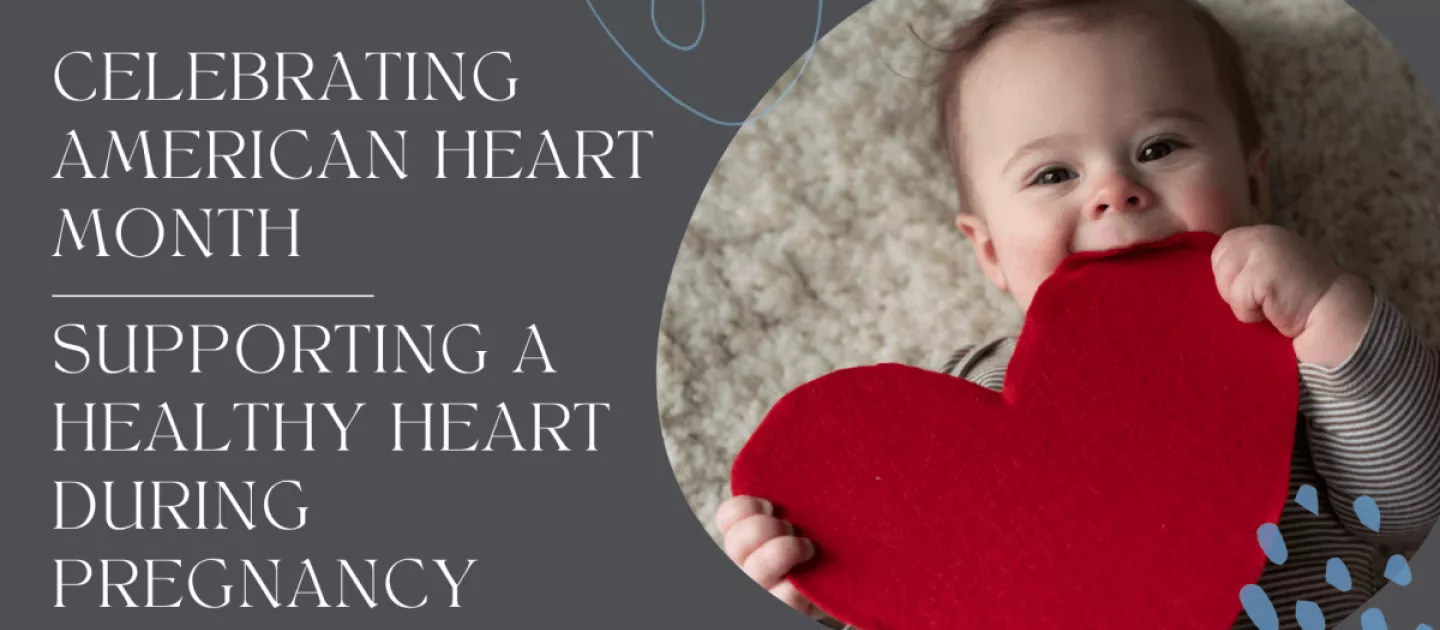A woman's body goes through a tremendous amount of change during her pregnancy. From hormonal shifts, nausea, to the act of growing and housing a new living being, a lot is going on - and that includes how her heart works, too.
Once pregnant, a woman's heart now has to pump enough blood for two, which comes with a 50% increase in blood volume by the time the baby is delivered. The significant increase in blood volume is usually the result of most heart-related changes. While a healthy heart is built to withstand the extra workload, heart and blood vessels can still arise - especially for those who have a heart condition or are at a higher risk due to genetics or lifestyle.
The easiest way for a woman to maintain heart health during pregnancy is to practice heart-healthy habits before even getting pregnant. Optimizing their health before pregnancy has been shown to significantly decrease not just heart-related pregnancy complications, but all pregnancy-related complications. While it's ideal to obtain optimal health during pregnancy, it's never too late to start practicing heart-healthy habits. Fortunately, there are so many changes that can be made to improve heart health.
Supporting a Healthy Heart During Pregnancy
- Eat a balanced, and nutritious diet with plenty of heart-healthy foods such as green vegetables, lean meats, and limited saturated fats.
- Exercise regularly. Pick something enjoyable so it doesn't feel like such a chore - such as taking an evening stroll with a partner, joining a prenatal workout class, or taking a dip in the pool.
- Get enough sleep. Aim for 30 minutes more sleep than pre-pregnancy. (A perfect excuse to hit the snooze button, or take a mid-afternoon nap.)
- Quit smoking or vaping.
- Limit Stress. Don't sweat the small stuff. Find ways to manage stress in a positive, productive way and seek help when needed.
- Attend all prenatal visits. Seeing a doctor regularly to monitor and manage mom and baby's health has been shown to significantly decrease the severity of complications.
- Be your own advocate. If something doesn't feel right, don't be afraid to speak up.
Improving Mom's heart health before and during pregnancy could also benefit the baby's long-term development. Heart and blood vessel conditions can impact the placenta's function. A poor functioning placenta can lead to reduced birth weight, obesity, or Type 2 Diabetes during childhood. Practicing heart-healthy habits and potentially avoiding heart-related complications have a positive outlook for Mom, too. Women who have better heart health during a pregnancy have been shown to have a decreased risk of developing heart disease later in life, according to researchers.
The good news is that so many heart issues are preventable. By taking the necessary steps to protect one's health before, during, and after pregnancy, they will be on a path towards long-term health.
Disclaimer: Banking cord blood does not guarantee that treatment will work, and only a doctor can determine when it can be used. PerkinElmer or ViaCord does not endorse or make recommendations with respect to research, medication, or treatments. All information presented is for informational purposes only and is not intended as medical advice. For country-specific recommendations please consult your local health care professionals.
[1] Nhlbi.nih.gov. 2022. Heart Health and Pregnancy | NHLBI, NIH. [online] Available at: <https://www.nhlbi.nih.gov/health-topics/education-and-awareness/heart-truth/listen-to-your-heart/heart-health-and-pregnancy> [Accessed 3 February 2022].
[2] Nhlbi.nih.gov. 2022. Heart Health and Pregnancy | NHLBI, NIH. [online] Available at: <https://www.nhlbi.nih.gov/health-topics/education-and-awareness/heart-truth/listen-to-your-heart/heart-health-and-pregnancy> [Accessed 3 February 2022].
[3] Benschop, L., Laura Benschop *Correspondence to: Laura Benschop, Schalekamp‐Timmermans, S., Sarah Schalekamp‐Timmermans Department of Obstetrics and Gynecology, Schelling, S. J.C., Sara J. C. Schelling Department of Obstetrics and Gynecology, Steegers, E. A. P., Eric A. P. Steegers Department of Obstetrics and Gynecology, Lennep, J. E. R. van, Jeanine E. Roeters van Lennep Department of General Medicine, & Benschop, *C. to: L. (2019, July 23). Early pregnancy cardiovascular health and subclinical atherosclerosis. Journal of the American Heart Association. Retrieved February 3, 2022, from https://www.ahajournals.org/doi/full/10.1161/JAHA.118.011394
[4]Inova Newsroom. 2022. Did you know during pregnancy the heart works harder?. [online] Available at: <https://www.inovanewsroom.org/2020/02/how-to-maximize-heart-health-during-pregnancy/> [Accessed 31 January 2022].
[5] Boyles, S. (2009, April 2). Low birth weight is linked to heart risk. WebMD. Retrieved February 3, 2022, from https://www.webmd.com/heart-disease/news/20090402/low-birth-weight-linked-to-heart-risk
[6] Corliss, J. (2021, May 26). Pregnancy problems may predict heart health decades later. Harvard Health. Retrieved February 3, 2022, from https://www.health.harvard.edu/blog/pregnancy-problems-may-predict-heart-health-decades-later-202105262466











